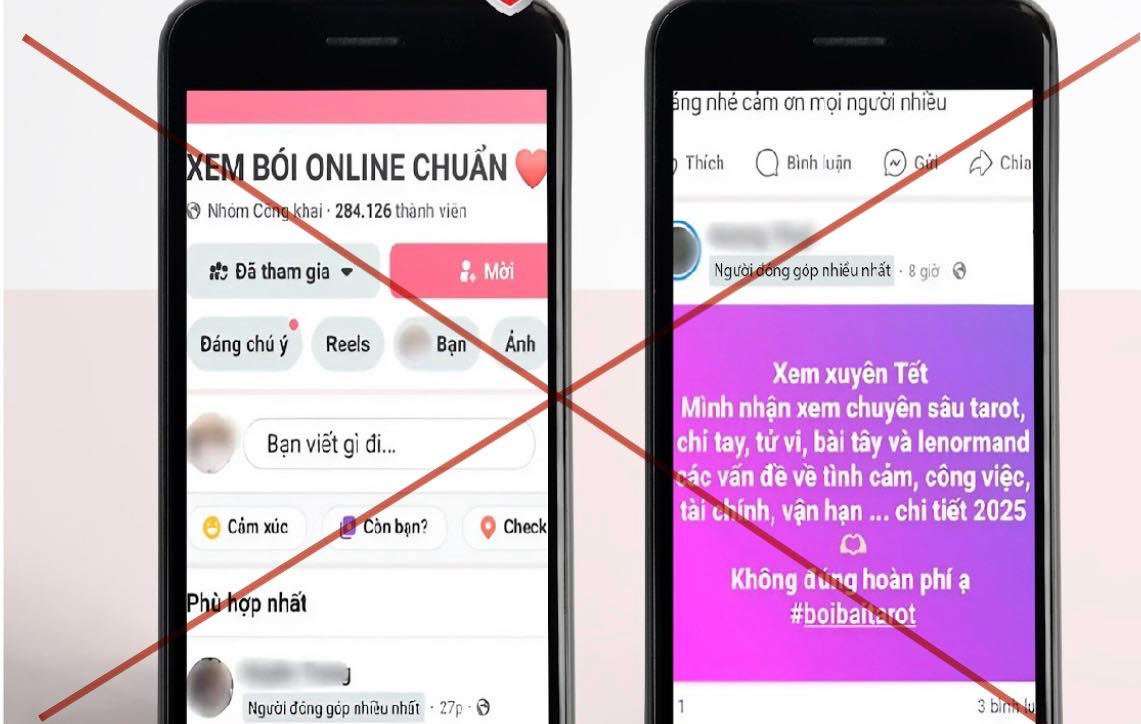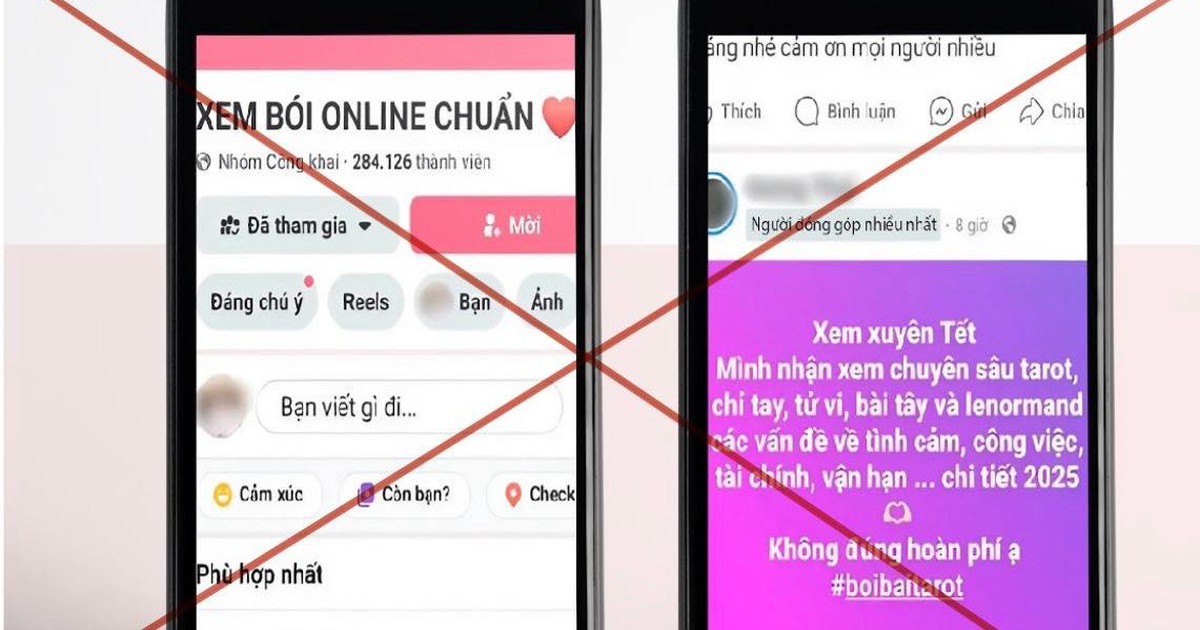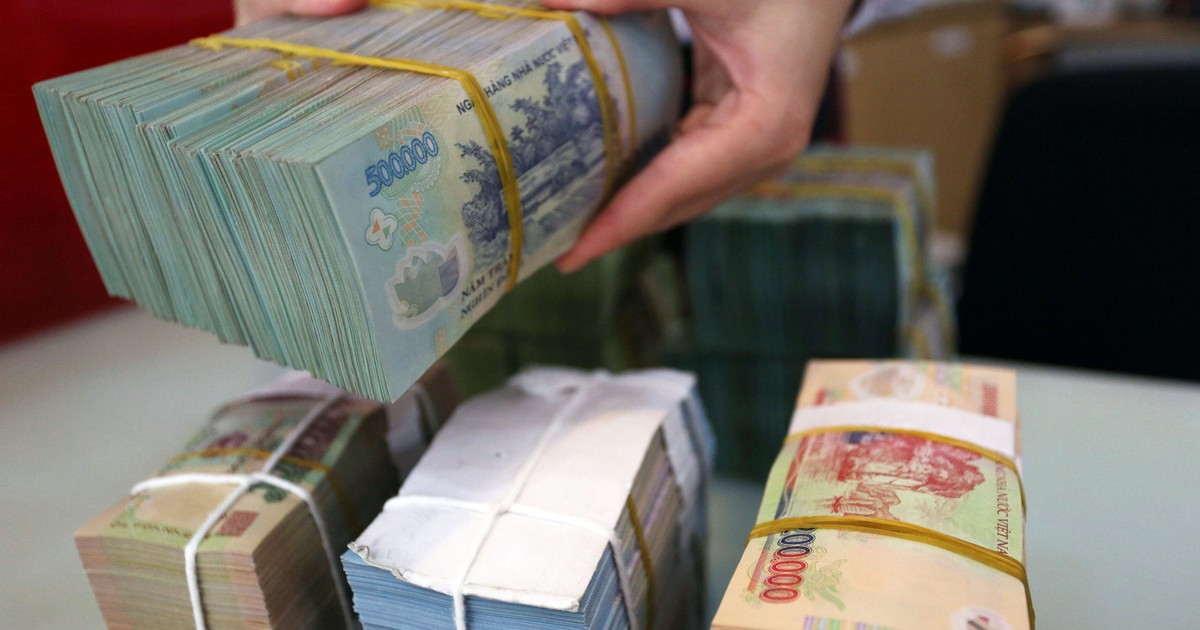On February 4, the Department of Information Security (Ministry of Information and Communications) issued a warning about scams in early 2025.

Online fortune telling is booming at the beginning of the new year
According to the Information Security Department, superstition is understood as people having strong beliefs in frivolous, vague things such as fortune telling, spells, and bad luck removal... to make listeners believe in supernatural and mysterious phenomena.
On the occasion of Tet 2025, taking advantage of the spiritual element at the beginning of the year, many people go to pray with the wish for a peaceful and prosperous new year. Online fortune telling (on social networks) is constantly flourishing, with hundreds of thousands of members participating in these groups.
Taking advantage of that psychology, scammers "follow the flow", using threatening words to make victims afraid and want to be cured. Victims of these tricks are often at a dead end, losing faith in real life, leading to blind belief in spiritual factors. Many people have to spend large sums of money to cure their bad luck or pray for material things. There are even cases where they use charms and spells to harm others.
To avoid the above sophisticated scams, the Information Security Department recommends: "People need to be vigilant and cautious, and should not blindly believe in spiritual forms on social networks. They should only choose and go to reputable addresses, and should not trust too much in the disguised forms of spiritual reading on cyberspace."
In addition, users need to carefully research and verify the identity of the subject before making any transactions on social networks. Raise the spirit of vigilance, do not send donations or support to accounts of unknown origin. In case of becoming a victim of fraud, people need to immediately report to the police for timely support and resolution.
Warning of fraud impersonating network operators to appropriate users' assets
Recently, Mr. LVM (living in Hanoi) received a strange phone call claiming to be from Viettel network, informing him about his telecommunications debt and asking him to pay more than 10 million VND to end the debt. When Mr. M. questioned the large amount of money, the subject gave a series of reasons such as calling abroad...
The subject even threatened that if he did not pay the full amount within 24 hours, he would disconnect his subscription and file a lawsuit, and that the police would call to verify. Because he was warned in time, Mr. M. did not fall into the subject's trap and reported the incident to the police.
The Information Security Department said that the common method of the above scammers is to impersonate employees of major network operators, calling to inform the victim that they owe a large amount of telecommunications fees. If the victim does not pay, the subscriber number will be locked, communication will be suspended and a lawsuit will be filed. The subjects often ask for addresses and personal accounts with the reason of checking to collect personal information of customers (name, age, address, ID number, household registration, bank account, OTP code...) to defraud and appropriate property.
After a few days, the subjects will call back and inform that the personal account of the phone subscriber is being used for illegal activities and ask to transfer all the money in the account for investigation or they will call to threaten and blackmail the subscriber.
In the face of the above situation, the Information Security Department recommends that people, especially the elderly, need to be highly vigilant and inform their relatives and friends about the above scams. For problems arising during the use of network services, people need to contact the network hotline or go to the transaction offices for timely advice and resolution.
Note, absolutely do not transfer money or provide personal information to strangers over the phone to avoid falling into the trap of fraudsters.
Source: https://thanhnien.vn/2-chieu-tro-lua-dao-dau-nam-can-canh-giac-185250204153334601.htm


















































Comment (0)